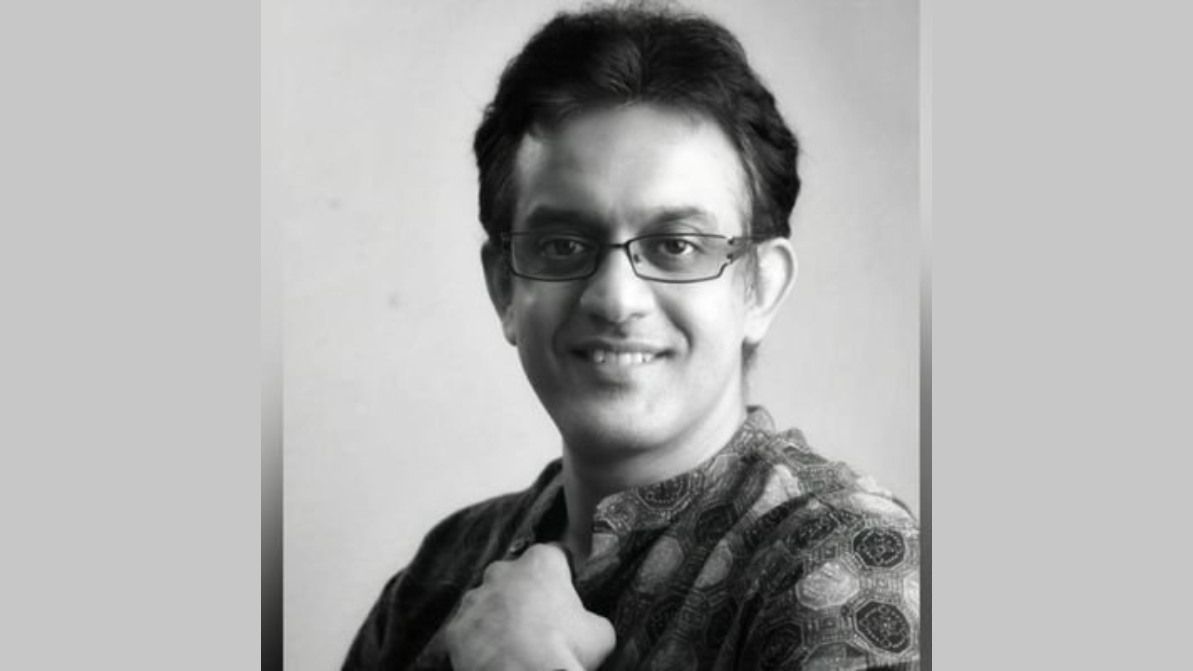Islamophobic Remarks:
Author and historian Dr. Vikram Sampat resides in Bengaluru. Savarkar: Echoes from a Forgotten Past 1883-1924 and Savarkar: A Contested Legacy 1924-1966 are two volumes he wrote about V D Savarkar, the founder of Hindu nationalism and the Hindutva movement, among his other works on Indian history.
The Hindu far-right views Sampat as someone who is presenting an accurate “indic version” of India’s past. Sampat is invited to events like The Sangam Talks and The Jaipur Dialogues that celebrate Hindu supremacy and advance the notion of an exclusive Hindu polity (Hindu Rashtra). With prominent Hindu nationalists like R Ranganathan, J Sai Deepak, and Sanjay Dixit, he frequently shares the spotlight and similar political ideas. Samptat’s photos with well-known Hindu right-wing figures, such as Narendra Modi and Mohan Bhagwat, show the political favors he receives from India’s top officials.
He promotes the idea of a Hindu or Indic Renaissance to restore the nation’s former splendor. His writings establish a dichotomy between indigenous and non-indigenous people in terms of religion, culture, and language by equating Indian culture with that of Hindus. He views Islam and Muslims as foreign to this country and sees them as the offspring of the “brutal invaders,” implying that they (Muslims) are deserving of the treatment they are currently receiving from the majority of Hindus in India. His total silence over the Hindutva (Hindu nationalist) terror in India highlights his implied support for the crimes against Muslims.
He repeated the same Hinduized version of India in an article he wrote for News18 in October 2021, headlined “Leftist History Negates India’s Civilizational Greatness, Underplays Bloody Islamic Conquests.”
“A nation is a shared emotional sense of belonging to a common territorial and cultural entity, whereas a nation-state is established by codified laws and clearly defined borders. There are countless references to this shared emotional belonging in the epics, the Ramayana, the Mahabharata, and the Puranas — collectively referred to as Itihasa — beginning with the millennia-old invocation in traditional Hindu rituals invoking the spatial sacred geography as “Bharata Khanda” in “Bharata Varsha” and “Jambudwipa,” he wrote.
When describing his concept of “Indic Civilization” and the Renaissance, he ignores the diversity of India. He even refers to the time when Muslims ruled as a “dark period” in Indian history. He compares the arrival of Islam to what he calls a “Hindu trauma” that has persisted over time. By praising Hindutva as a necessary defensive mechanism against outside aggressions, he applauds the ideology that underpins Hindu fanaticism in India.
He claimed that Hindutva and Hinduism are so close that they may be used interchangeably in a 2022 interview with Citti Media. He declared, “When you are dealing with theology that is unilateral and always thinks my way or the high way, theology with one book, one God, and one message, theology with one book, one God, and one messenger, you are dealing with the nasty agenda of Hindu dominance and violence. Anyone who disagrees with them is an infidel who deserves to be tortured horribly and is destined for hell. The faithful have a natural right to convert, abuse, and vandalize such people. What role does religion or faith, which is so inclusive, egalitarian, and benign, play in such a situation?
Sampat praised Narendra Modi in a December 2022 interview with Times Now for promoting Indian religions and culture by taking part in Hindu rituals and festivals.
Where else will the Indic religions, which have their roots in this region, be honored and celebrated if not here? In the OIC countries, they will be honored! I don’t see anything wrong with you participating in activities that highlight this nation’s rich civilisation while still serving as the head of state, he remarked.
His two-volume biography of V. D. Savarkar was the subject of plagiarism claims in February 2022 from eminent historians. Three historians, Ananya Chakravarti of Georgetown University, Rohit Chopra of Santa Clara University, and Audrey Truschke of Rutgers University, expressed their concerns about a “long-standing pattern of plagiarism” in the work of Vikram Sampath, a member of the Royal Historical Society in the United Kingdom, in a letter to the president of the Society. Sampat, however, was successful in getting the court to rule in his favor. The Delhi High Court has not yet made a decision in this case.

